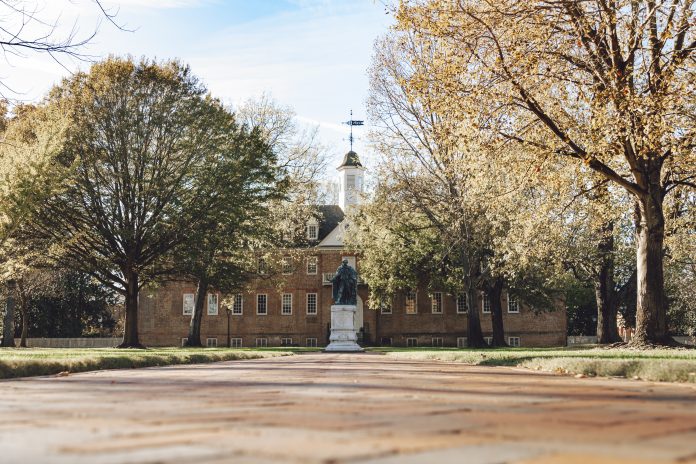Carina Pacheco ’23 is a history major and native of New Jersey. Her email is capacheco@wm.edu.
The views expressed in the article are the author’s own.
Since 2016, Donald Trump has conjured “witch-hunt” imagery to denounce the futile attempts by adversaries to dismantle his right-wing crusade. As the former president may not know, the seventeenth century women who were persecuted for witchcraft did not manage to avoid the stake for as long as he has. Now more than ever, there is hope that Donald Trump’s legal and political immunity may be up. Impeachment, FBI raids, congressional committee hearings, legal indictments, you name it — he still stands. How can there be accountability when increasing polarization breeds alternative realities?
The reality of this political moment is difficult to accept and interpret, but it’s important to remember that the new generation of voters does not have the perspective of the 60s, 70s and 80s that many elected officials and older voters do. While the political architecture of the day may surprise or frustrate the generations before us, young voters feel immobile, dissatisfied and resentful of the political gerontocracy. While women’s rights are compromised and Black lives are at risk, America’s latest season of reality TV politics hogs airtime and monopolizes content. The lack of transparency, absence of accountability and ever-increasing polarization leaves young voters exacerbated.
The College of William and Mary’s seniors and juniors were eligible to vote in 2020, but that leaves roughly half of the student body voting in their first presidential election — and maybe even first state elections — between now and 2024. What does this particular moment mean for young voters in a changing democracy? How do we navigate the nonsensical? How can we stay energized to be politically active when we feel hopeless in the face of injustice, corruption, and economic stress?
One thing is for certain: it is imperative to stay informed. Listening to podcasts, subscribing to newsletters or following news outlets on social platforms are easy ways to work information into your daily routine. Consume your content critically: engage with the material you absorb, ask questions, and maybe even do brief research on what interests you. Still, staying up to date can be exhausting. We are constantly battered by the twenty four hour news cycle and chronic exposure to social media. It’s hard not to get overwhelmed or discouraged by the absurd amount of information we digest on a daily basis — not to mention school and classwork. Taking strategic breaks from the news or your phone can help evade burnout and protect future engagement.
Further, recognizing that people are imperfect — and therefore politicians and our systems are also imperfect — can be a useful tool. For one reason or another, Americans celebritize politicians, so much so that celebrities are actually running for office. A recent episode of “The Argument,” a New York Times opinion podcast, discusses the “political cult of celebrity” that Americans experience today. We tend to ascribe misleading or inaccurate attitudes and characteristics to politicians, shifting focus away from their policies, history, and practices. In turn, politicians rely on their egos and dedicate money and effort to soundbites, likes and viewers to get ahead rather than researching their constituency, constructing effective policy or just doing the right thing. If there’s one thing the last few years have shown us, it’s that incumbent politicians get far too comfortable. Let them do their job by earning your vote.
For young voters, maintaining political obligation can seem feckless when elected officials appear to be anything but responsible. America appears locked in a battle of attrition, fighting for inches in no man’s land, using unagreed-upon facts and figures as ammunition. To young voters who may be becoming less energized to participate in politics, I say that young people can generate the much needed momentum — for everyone — to do better. Our temporary discomfort trumps the disintegration of democracy. Staying politically informed, personally inspired and collectively motivated to do right by ourselves and our neighbors is essential to leading our communities through this complicated political moment.
William & Mary students can register to vote in their home states OR in Virginia. Check your registration status or register to vote here: https://vote.gov
Let us know whether you agree with this article here

